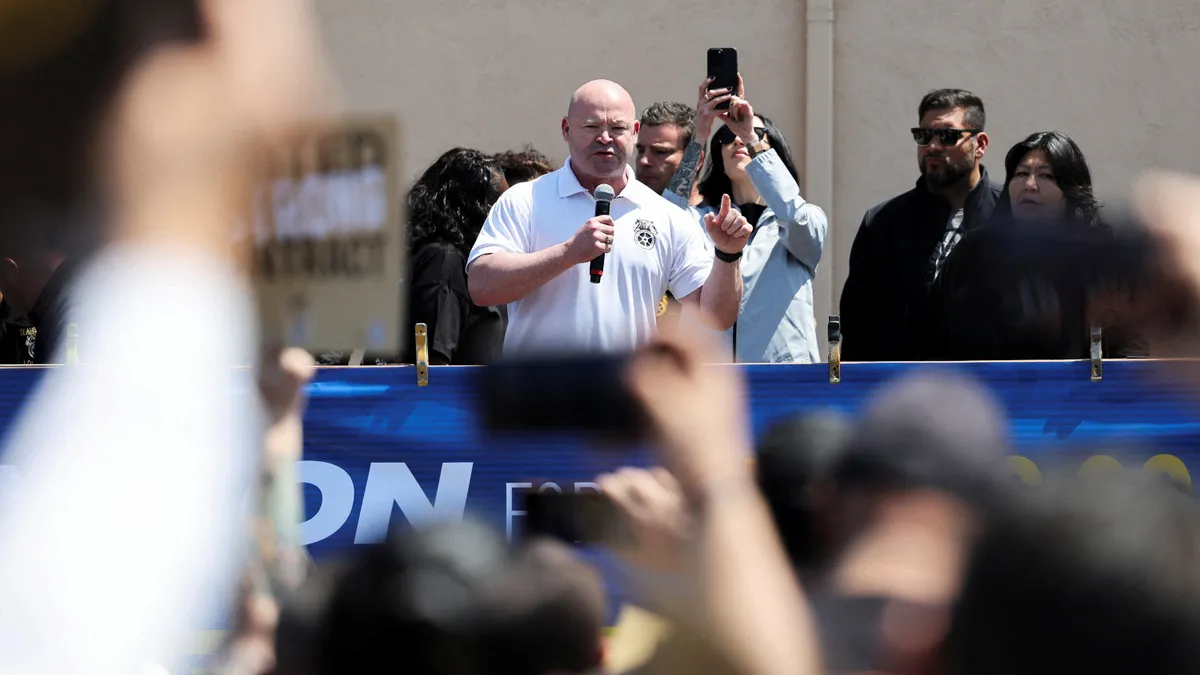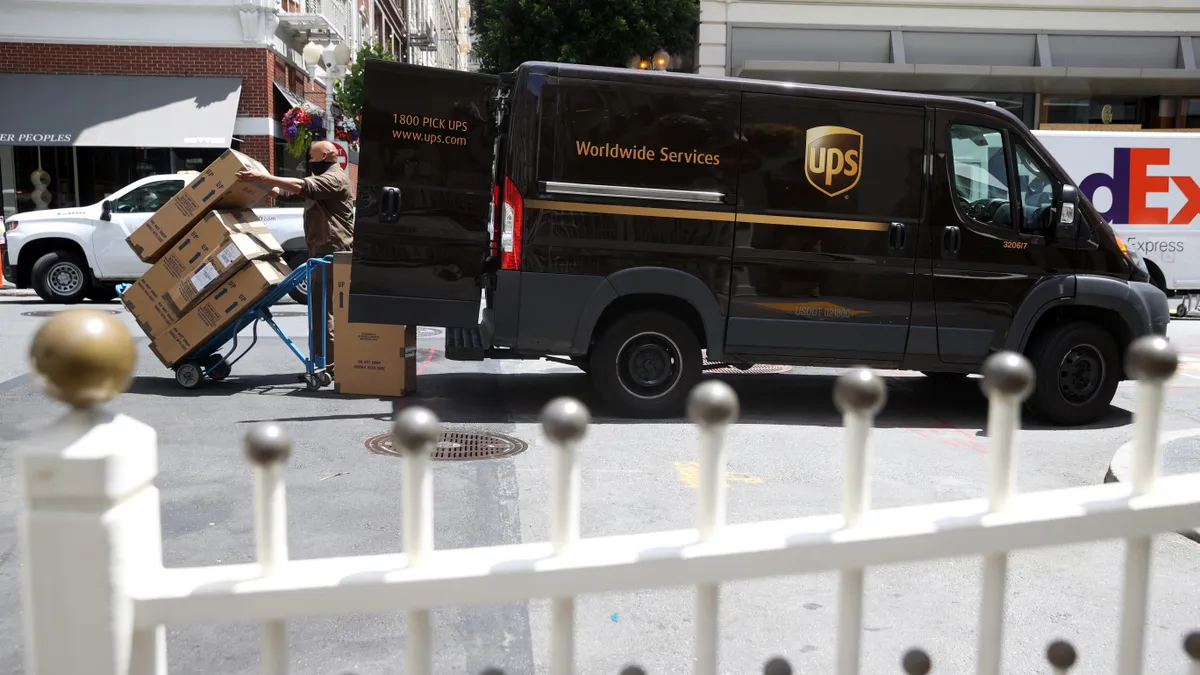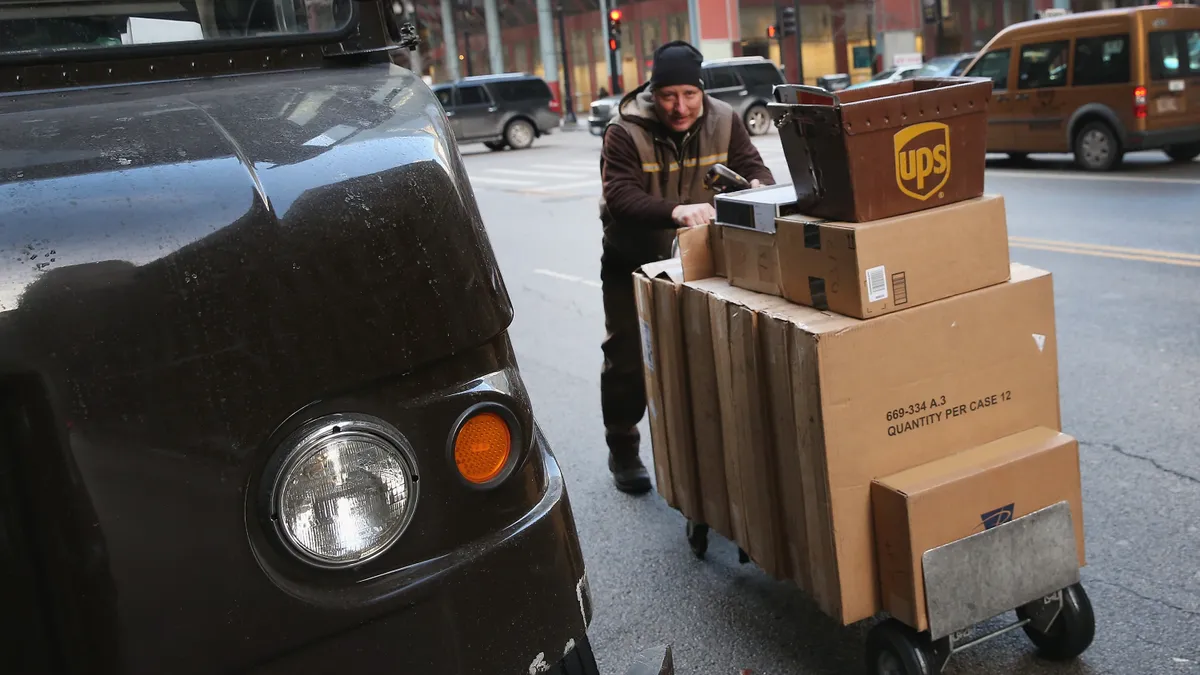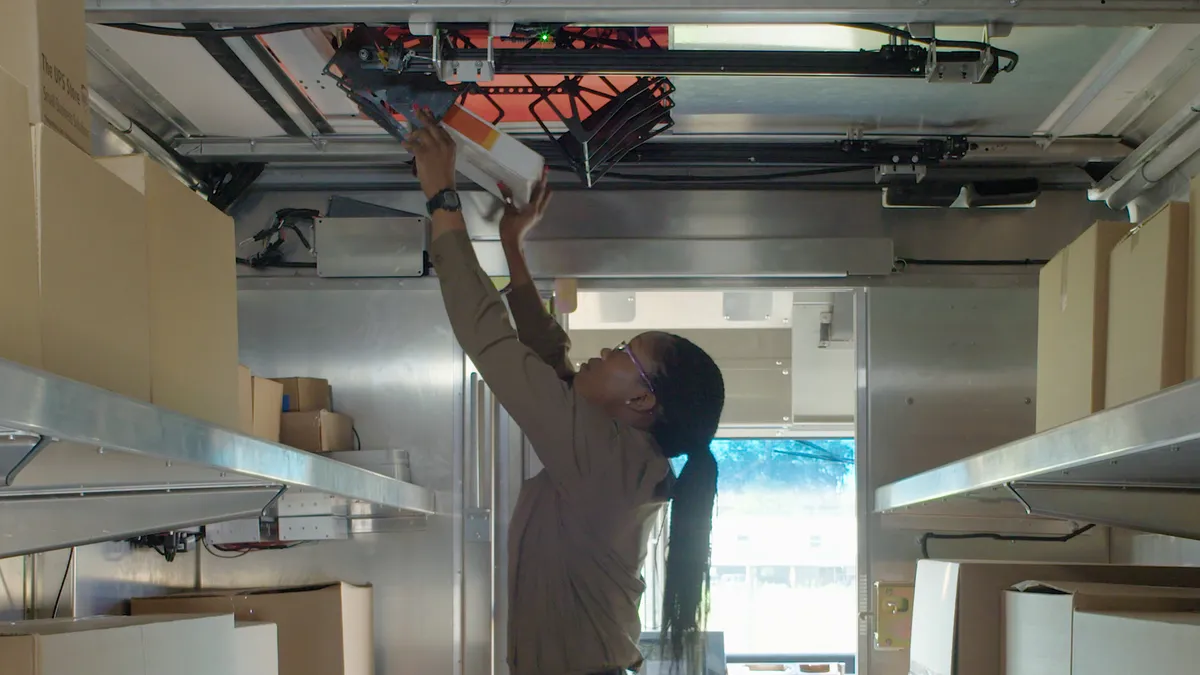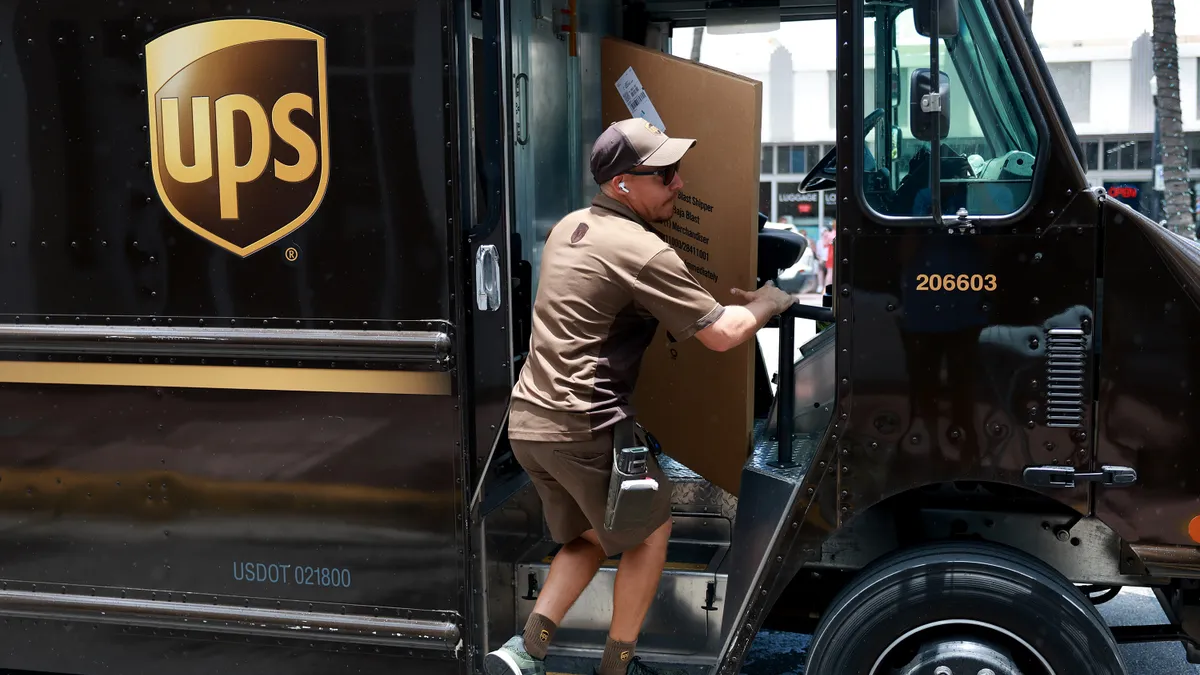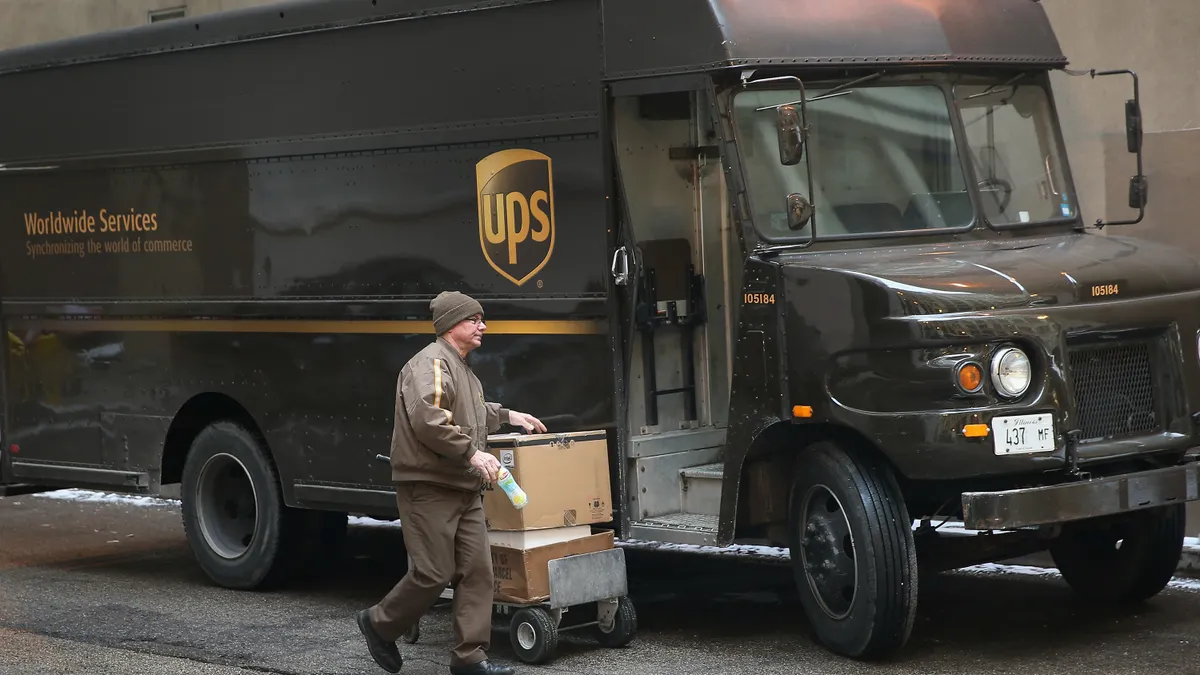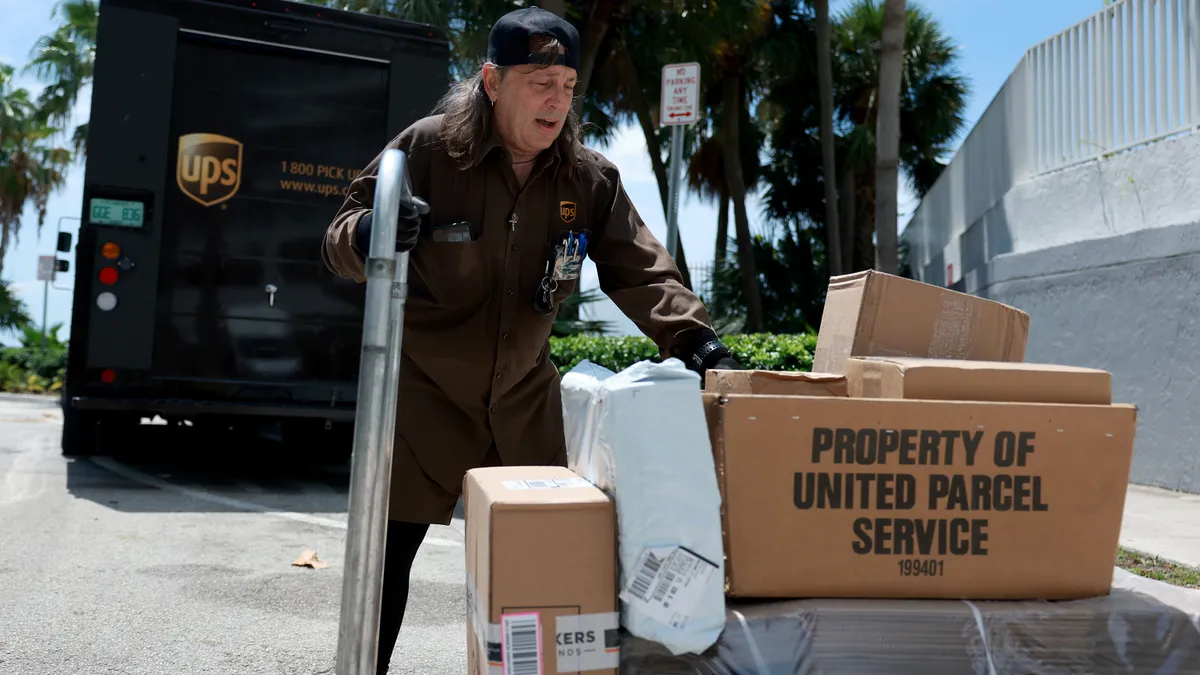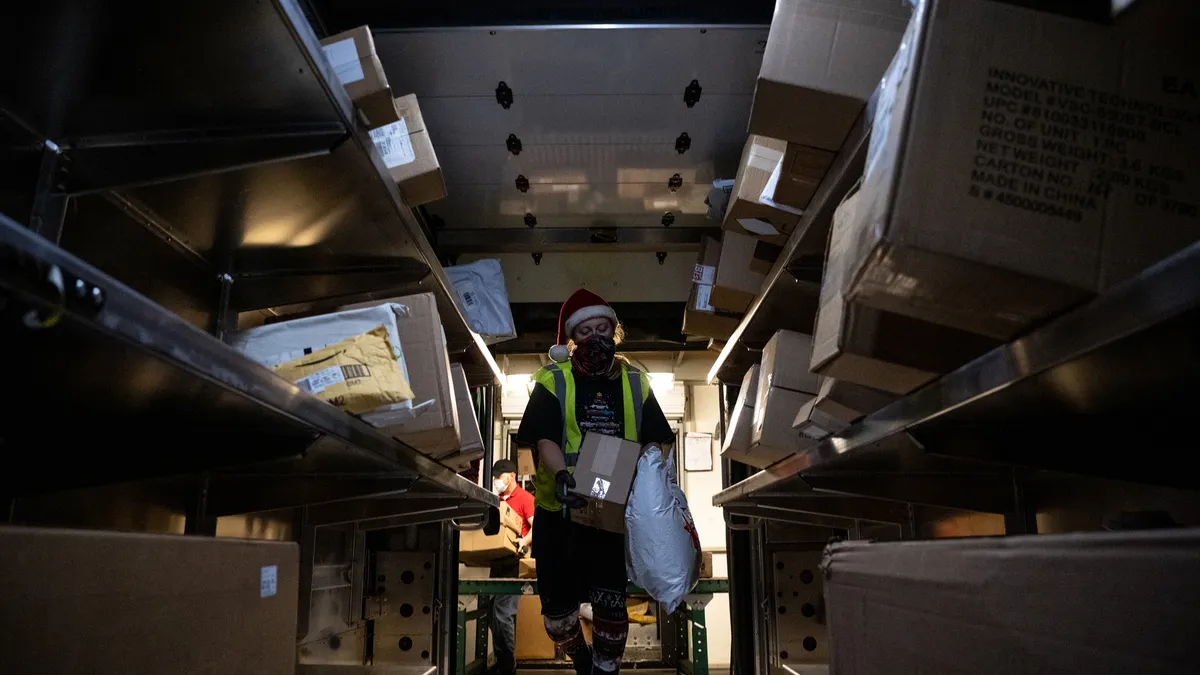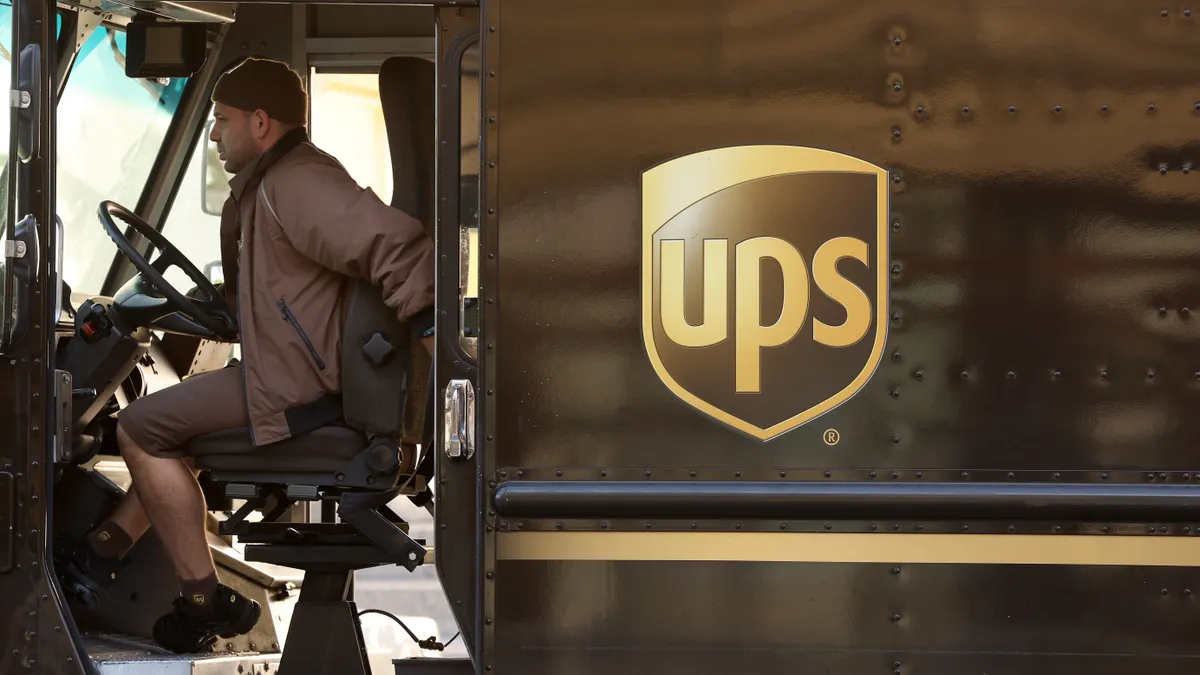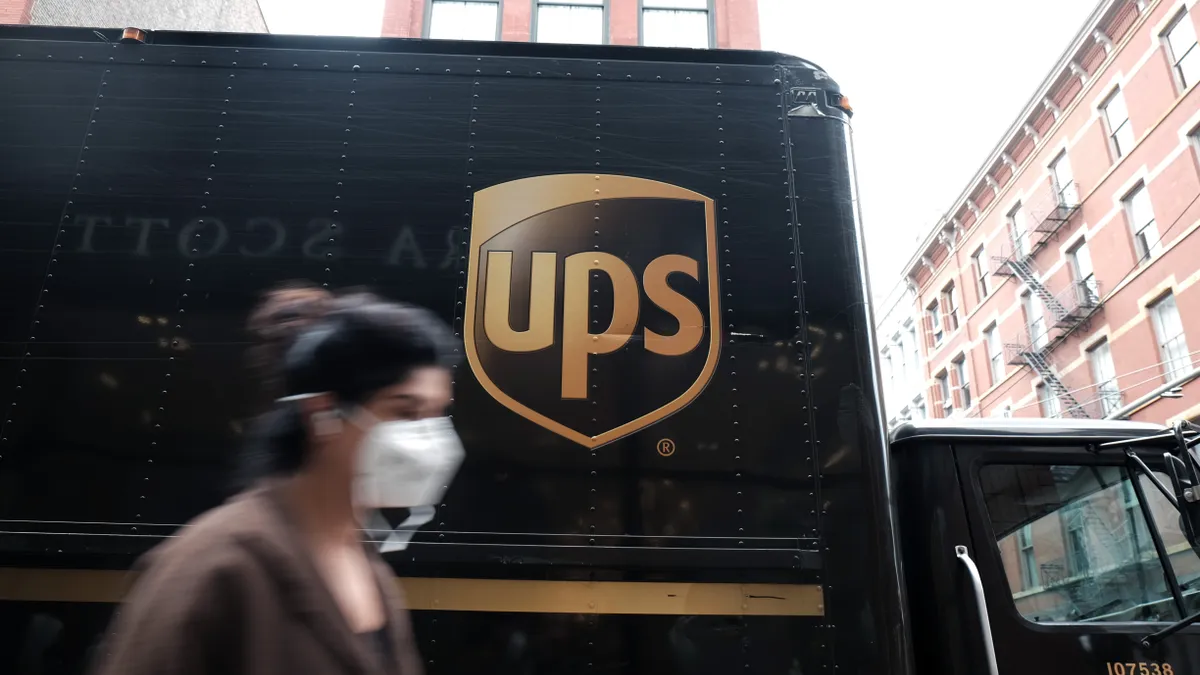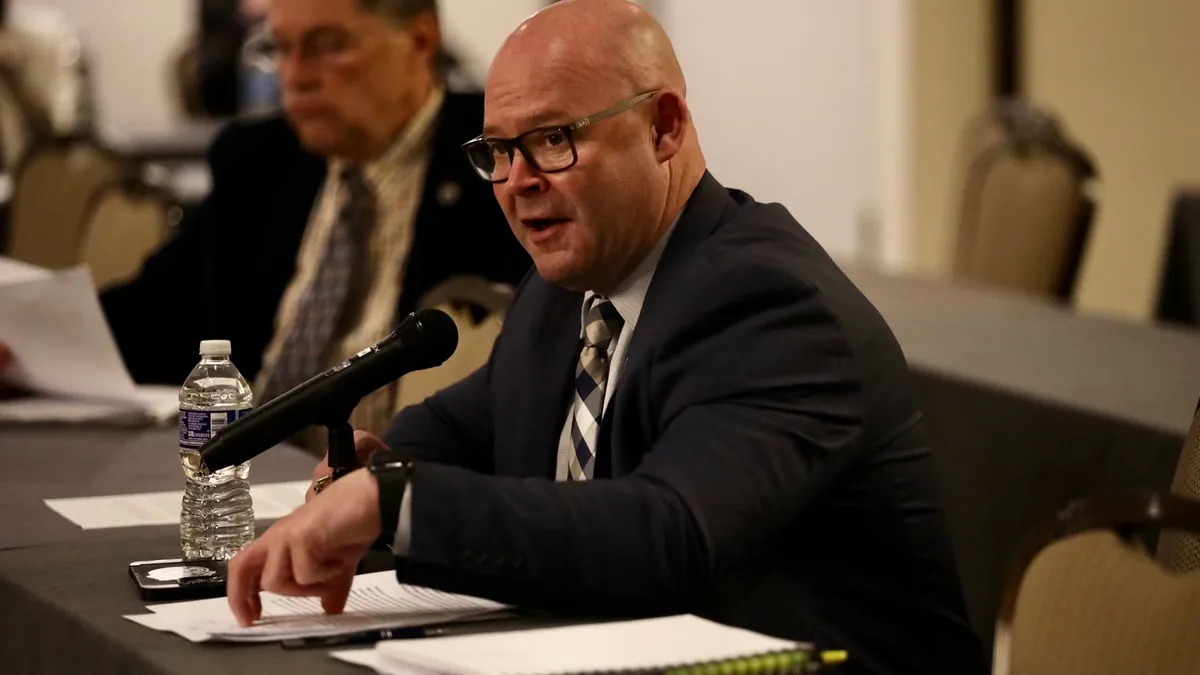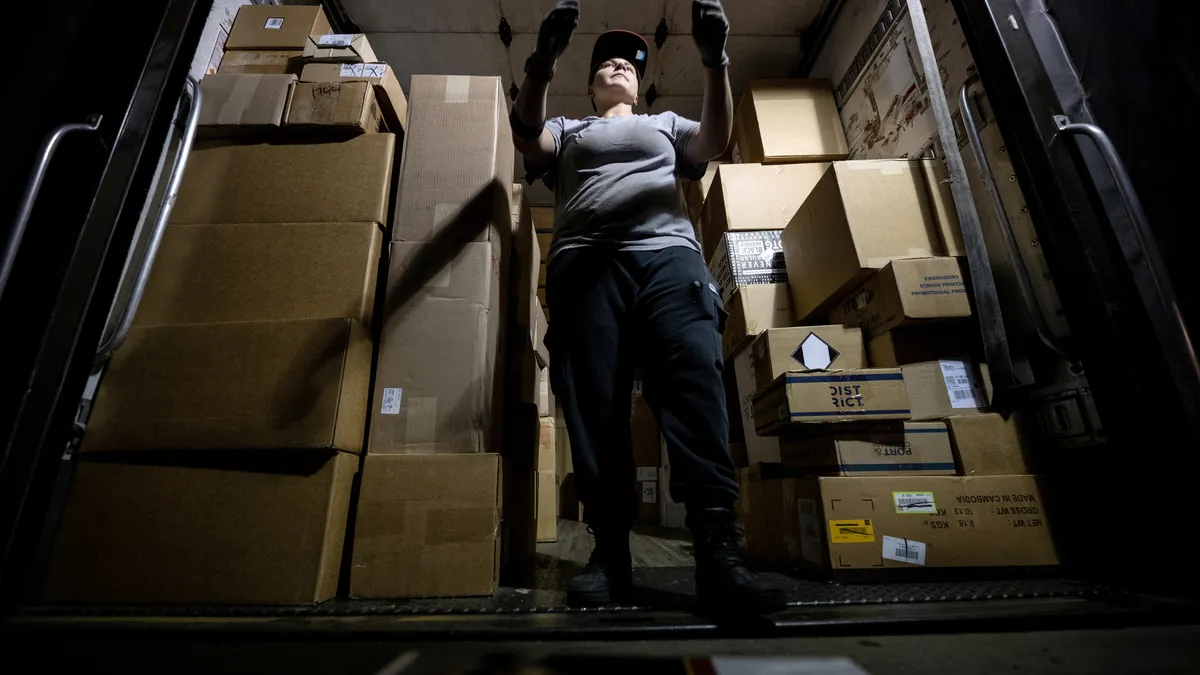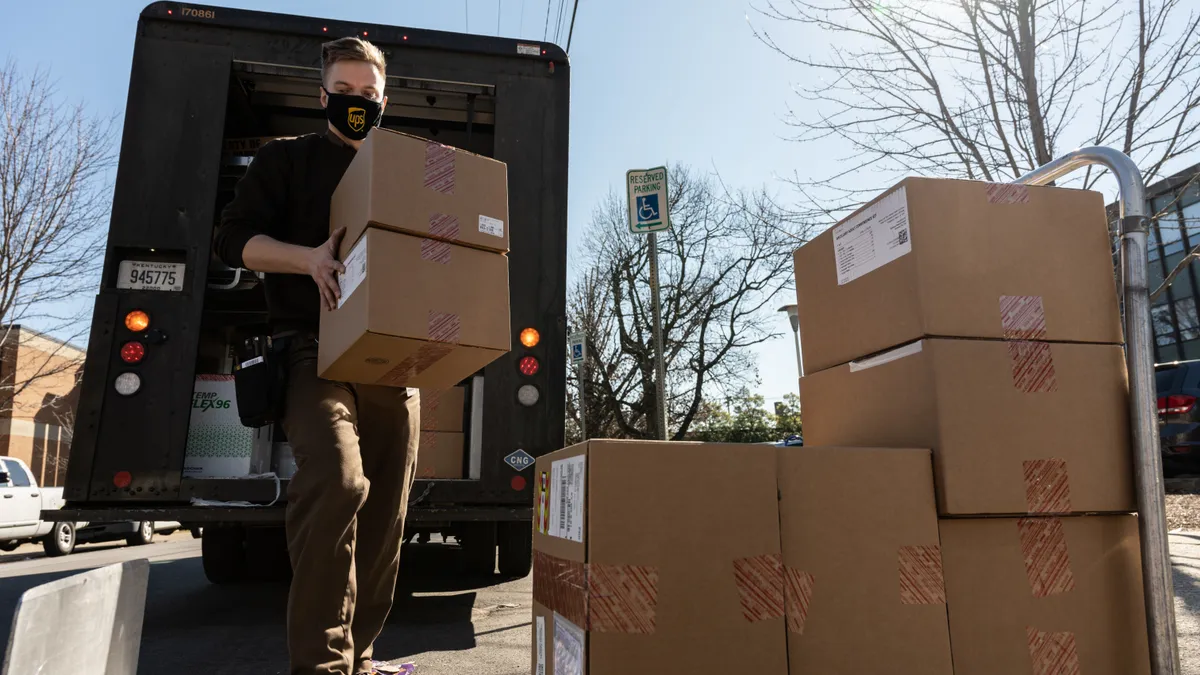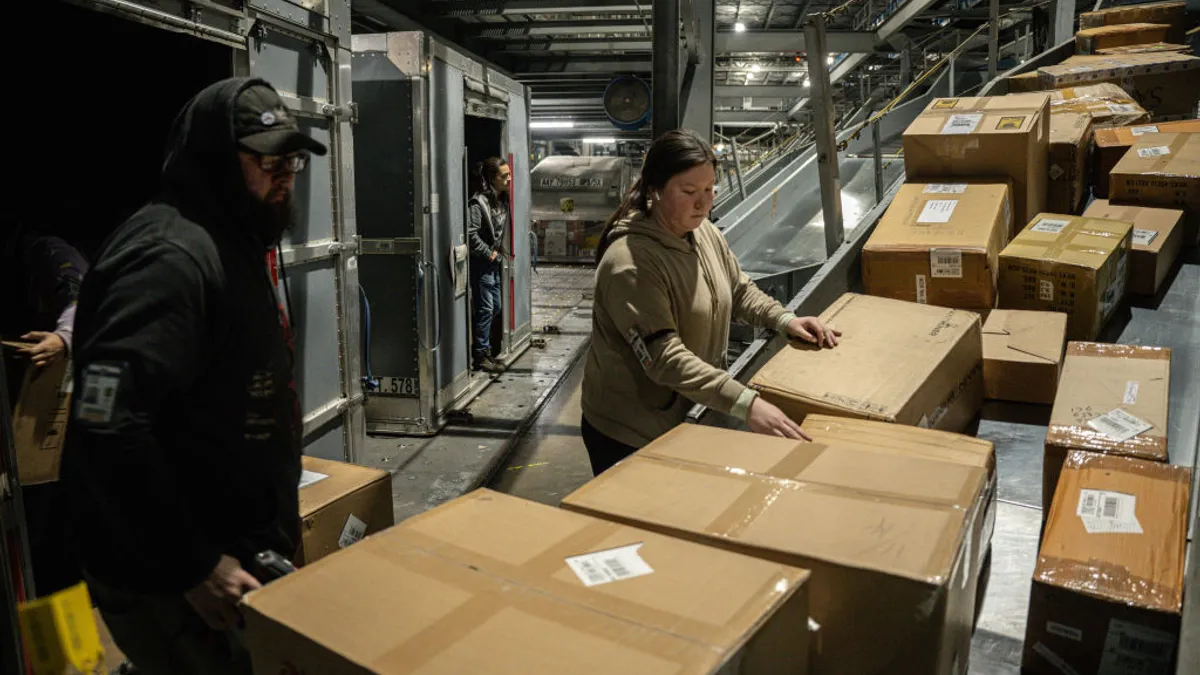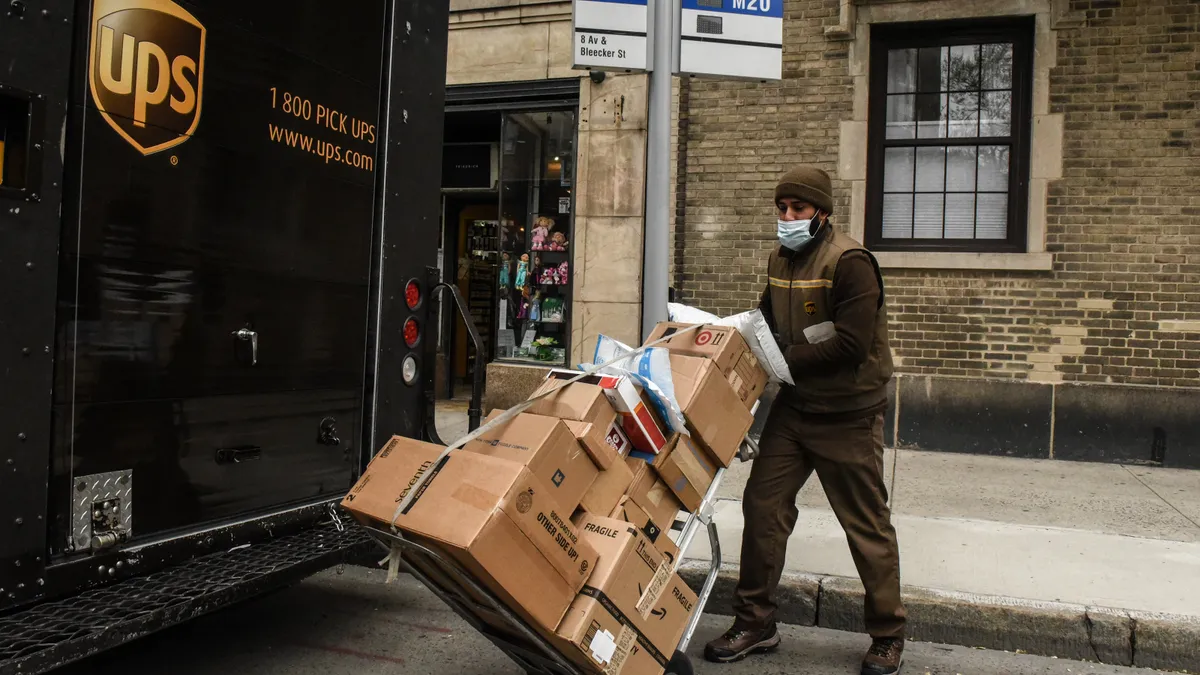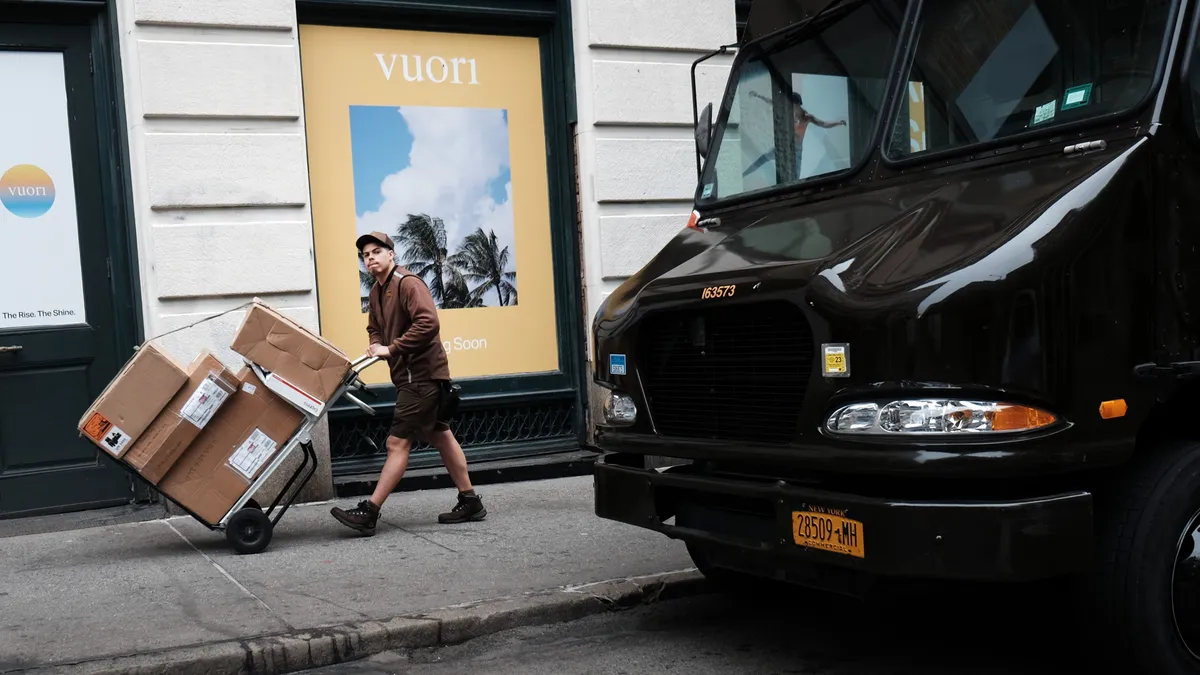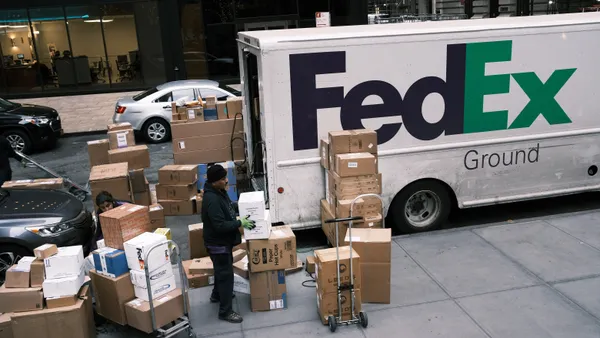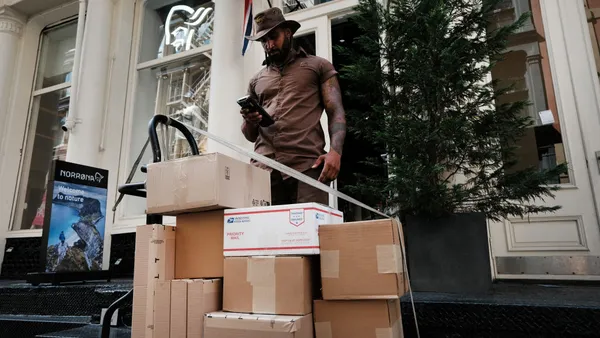"Imminent." "Inevitable." "Just the beginning."
The International Brotherhood of Teamsters is escalating its rhetoric against UPS as the two sides attempt to reach a tentative labor agreement ahead of the expiration of their current five-year national contract on July 31. Economic terms like pay and benefits remain roadblocks in talks, and the Teamsters say they will strike Aug. 1 if a deal isn't in place by then.
"Chinstraps are buckled," the Teamsters said Friday. "The rank-and-file are getting strike-ready."
In recent interviews with Supply Chain Dive, logistics and labor experts said a strike still isn't a certainty despite the union's demands to speed up negotiations, but note the chances of one are increasing. Progress will depend on how willing negotiators are to adjust their current economic proposals.
"It's like a game of chicken — who's going to budge first?" Trevor Outman, founder of Shipware, said of the negotiations. "UPS wants a revenue-neutral or cost-neutral proposal. In other words, they don't want to pay up any more than what exists today. And clearly, that's not gonna work for the Teamsters."
If the standoff continues and results in a strike, U.S. supply chains will see significant disruptions. The current contract covers around 330,000 UPS employees, including delivery drivers and package handlers, helping the company deliver millions of packages every day.
The most vulnerable UPS shippers are those without alternative carriers in place to handle diverted packages, experts say. It gets even harder if they don't have enough volume and financial muscle to compel other carriers to make extra room in their networks at the last minute.
"If I'm in a logistics professional's shoes right now that's sourced with UPS, I'm doing everything I can for the next couple of weeks to get something in place to ensure I've got a way to deliver packages to my customers," Outman said.
Negotiations timing favors the Teamsters
Timing matters in labor contract negotiations, and for this bargaining round, it’s in the Teamsters' favor.
UPS' bottom line benefited during the COVID-19 pandemic from a surge in demand and locked-in contract wages while competitors grappled with climbing labor costs, said Alan Amling, distinguished fellow at the University of Tennessee’s Global Supply Chain Institute and former VP of corporate strategy for UPS.
"That tends to work against you in the negotiations because none of that profit is getting shared with the people on the front lines," Amling said. "That's the Teamsters' position, and it's hard to argue against that. I mean, it's a fact."
Now, the bill is due, with the Teamsters demanding large raises in the next contract and calling a recent proposal from UPS "unacceptable."
"Following marathon negotiations, UPS refused to give the Teamsters a last, best, and final offer, telling the union the company had nothing more to give," the union said Wednesday.
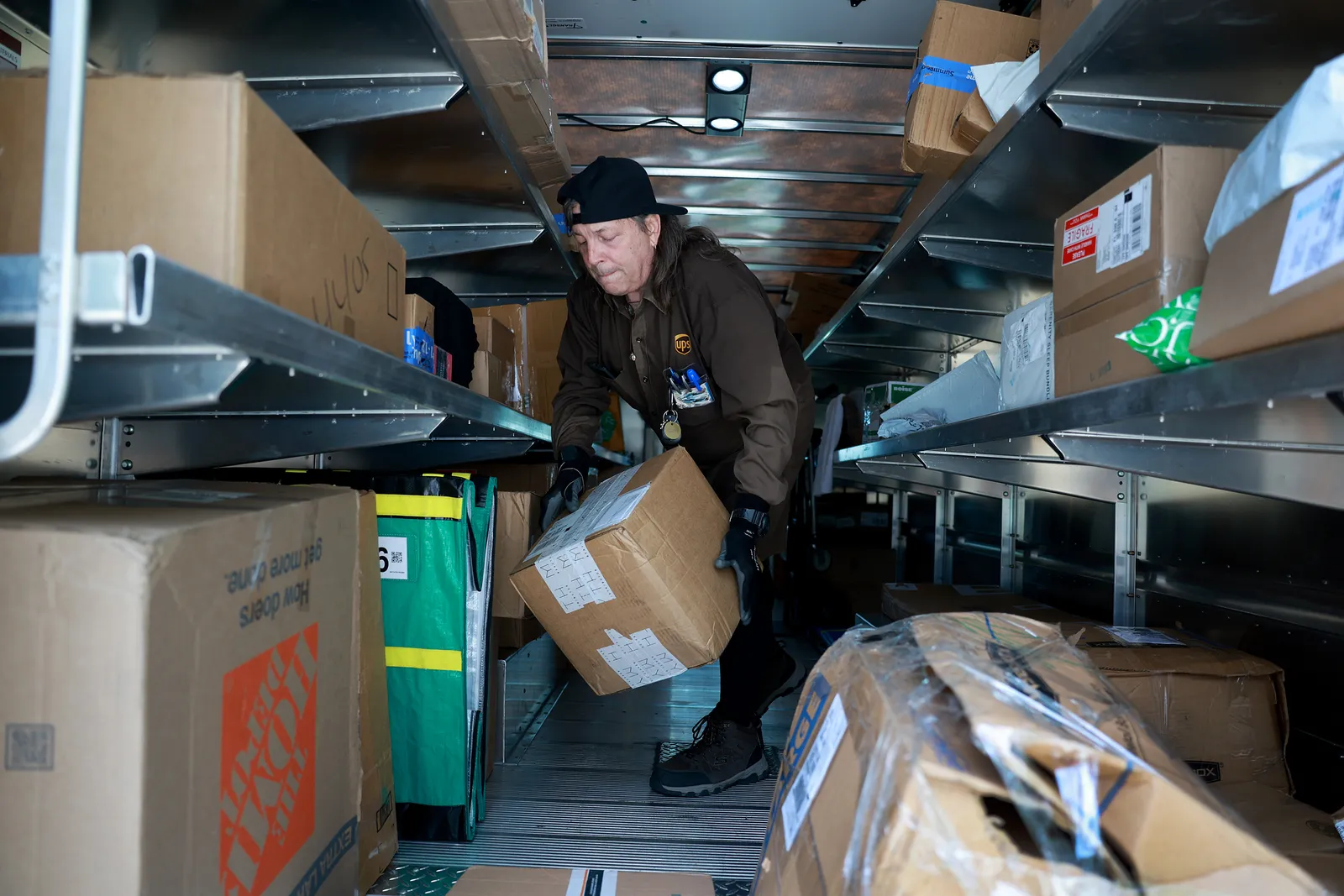
The Teamsters' continued push for a "final offer" weeks before the current deal expires is an attempt by the union to wriggle the negotiations out of an impasse, said Todd Vachon, an assistant professor in the Rutgers School of Management and Labor Relations. And if that offer is rejected by Teamsters' membership with time to spare before the contract expires, that gives its negotiating committee another opportunity to turn up the heat and pursue more favorable terms before a strike.
"It's a way for them to demonstrate that they need to get more, otherwise what's going to happen a month from now is they're going to vote this down and they're going to be on strike," Vachon said.
If both sides remain at an impasse, there's not much influence that outside parties can exert on contract negotiations.
While Congress passed — and President Joe Biden signed — legislation imposing a labor agreement on rail workers to avoid a strike or lockout last year, UPS negotiations present a different situation. With company employees covered under the National Labor Relations Act, not the Railway Labor Act, lawmakers don't have the authority to force striking UPS workers to return to their jobs, said Art Wheaton, director of labor studies at Cornell University’s School of Industrial and Labor Relations.
"There's fewer tools for Biden and the Biden administration to force the Teamsters to accept any of the contract language," Wheaton said.
Diverse carrier mix will benefit shippers
Parcel volume flows apparently haven't shifted much despite contract negotiations remaining unsettled.
Rival FedEx didn't see any material benefit from the talks in May when anxious UPS customers could have shifted packages to other carriers, although it is having "great conversations with legacy UPS customers," EVP and Chief Customer Officer Brie Carere said on a recent earnings call.
But activity from UPS shippers diverting packages to other carriers will increase the closer the deadline gets without a deal in place, experts say. The question is how much of UPS' business will other carriers be able to take on, as the company represented 24% of the U.S. parcel market by volume last year, according to Pitney Bowes.
UPS second to the Postal Service in U.S. delivery activity
Carriers generally have capacity to spare as delivery demand has cooled from its pandemic-driven heights. However, Michael Foy, director of business development at Inmar Intelligence, said FedEx and other carriers will limit how much diversion activity they're willing to accept. Volume shifts will be easier for shippers that have existing business with UPS competitors.
"You can't just all of a sudden start getting contracts in place in the next three weeks — it's nearly impossible," Foy said. "But, if you're a retailer and you've got 70% of your business with UPS, maybe 10% with a regional carrier and 10% with the Postal Service, then you have a little bit more leverage."
Shippers have made strides in recent years in diversifying their carrier mix, in part to mitigate their exposure to single-carrier disruptions and capacity constraints. The average number of last mile carriers per company account in April was 5.52, up from 4.98 the year before, according to a May project44 report.
“If you're 99% UPS [deliveries] and it's the week before the strike, you don't have a lot of options,” Foy said.
Editor's note: This story was first published in our Logistics Weekly newsletter. Sign up here.



